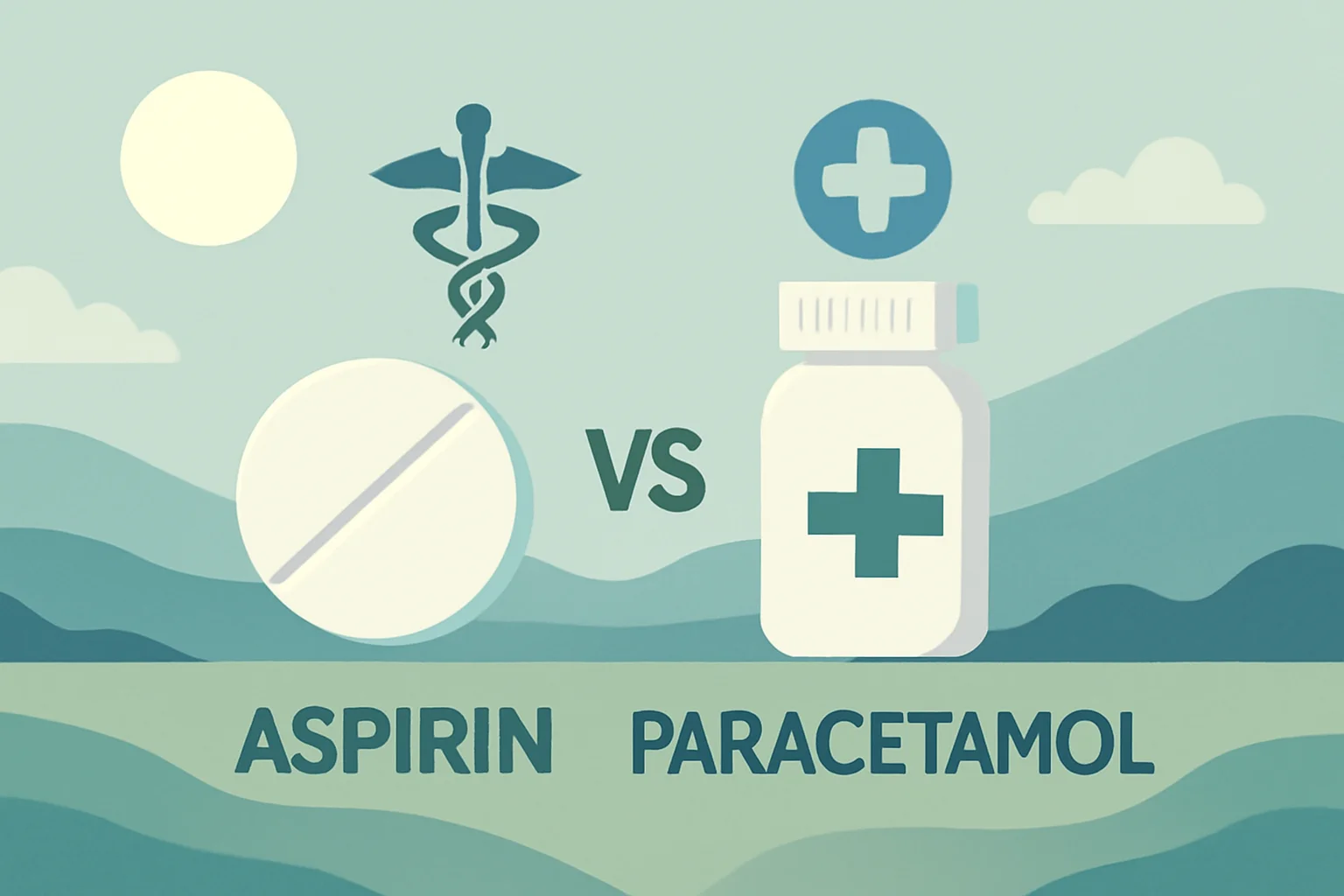
Aspirin or paracetamol: Which is the more effective pain reliever?
The use of paracetamol and aspirin for pain relief and fever reduction are among the most commonly used medications. Both are well-known and found in many households. However, there are significant differences between the two drugs that are worth understanding to choose the appropriate medication for various situations. Aspirin, also known as acetylsalicylic acid, not only has pain-relieving and fever-reducing effects but also possesses anti-inflammatory properties. In contrast, paracetamol primarily has pain-relieving and fever-reducing effects, with weaker anti-inflammatory properties.
Both medications have their own advantages and disadvantages. Aspirin can be effective in treating migraines and chronic pain, but long-term use can cause stomach problems as it irritates the gastric mucosa. Paracetamol, which is generally well tolerated in most cases, can cause severe liver damage in the event of an overdose. It is important to know in which situations it is advisable to use these medications and when it is necessary to consult a doctor.
Effects and Applications of Aspirin
Aspirin, also known as acetylsalicylic acid, is a widely used medication that can be applied to treat various health issues. Due to its pain-relieving, fever-reducing, and anti-inflammatory effects, it is often chosen for different types of pain, such as headaches, muscle pain, or arthritis. The mechanism of action of aspirin is due to its inhibition of the production of prostaglandins, which are substances responsible for the development of pain and inflammation.
Another important application of aspirin is the prevention of cardiovascular diseases. Taking low-dose aspirin can reduce the risk of heart attacks and strokes by preventing the aggregation of platelets, thereby improving blood flow. This effect is considered particularly important for patients suffering from heart diseases.
Although aspirin has many benefits, it is not recommended for everyone. Those who have peptic ulcers, gastritis, or allergic reactions to aspirin should avoid its use. Additionally, special caution should be exercised when administering aspirin to children and adolescents suffering from viral infections, as Reye’s syndrome, a rare but serious illness, has been associated with the use of this medication.
Advantages and Disadvantages of Paracetamol
Paracetamol, also known as acetaminophen, is one of the most popular pain-relieving and fever-reducing medications in the world. The medical community widely recommends it because it is generally well tolerated and has few side effects when used at the recommended dosage. The mechanism of action of paracetamol differs from that of aspirin, as it does not inhibit the production of prostaglandins in the gastrointestinal tract, thus not causing gastric irritation.
Paracetamol effectively reduces fever and alleviates pain, making it frequently recommended for treating colds, influenza, headaches, or muscle aches. The safe use of the medication among pregnant women and children is also recognized, although its use during pregnancy should always be discussed with a doctor.
The downside of paracetamol is that it can cause severe liver damage in the event of an overdose. Taking more than the recommended daily dose can be dangerous, so it is important to follow the instructions. Additionally, while paracetamol is well tolerated, some individuals may be sensitive to it and may experience allergic reactions.
Comparison of Aspirin and Paracetamol
The choice between aspirin and paracetamol often depends on the type of pain and the individual condition of the patient. Aspirin has a stronger anti-inflammatory effect, making it potentially more effective for treating arthritis or other inflammatory conditions. In contrast, paracetamol is more recommended for treating fever and mild pains, such as headaches.
Regarding side effects, long-term use of aspirin can cause stomach discomfort and peptic ulcers, while an overdose of paracetamol can lead to liver damage. Therefore, it is important for patients to be aware of the possible effects of the medications and to consult their doctor if necessary.
Both medications have their own advantages and disadvantages, and the choice should consider the patient’s overall health status, potential drug interactions, and the type of pain or fever. It is especially important for patients not to self-medicate and to consult a doctor if they are uncertain about the appropriate medication to choose.
When to Consult a Doctor?
Although aspirin and paracetamol are widely available medications, it is important to know when it is necessary to consult a doctor. If pain or fever persists for an extended period or if severe, unrelenting pain is experienced, it is essential to consult a specialist. Additionally, if any unusual symptoms occur after taking the medication, such as allergic reactions, stomach pain, or jaundice, immediate medical assistance should be sought.
This is particularly important for individuals in high-risk groups, such as pregnant women, the elderly, or those with pre-existing health conditions. Doctors always recommend the most appropriate treatment based on the individual needs and health status of the patients. Ignoring medical advice, especially when using medications, can have serious consequences.
**Warning:** This article does not constitute medical advice. Always consult a doctor for health issues.

